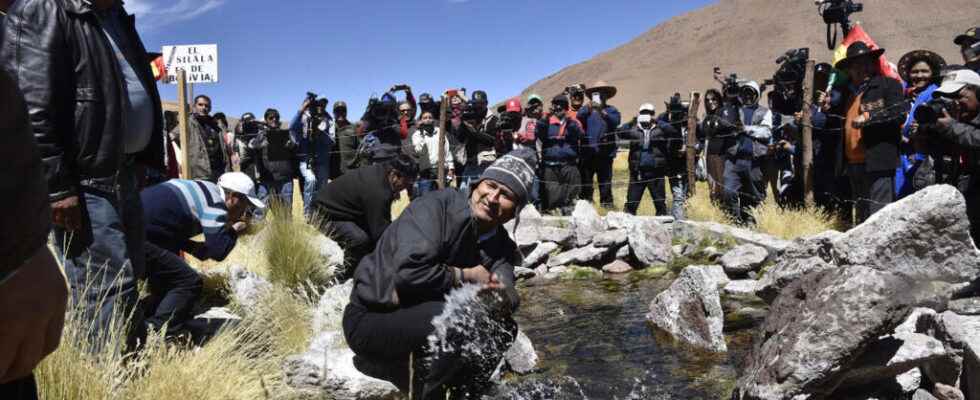After six years of proceedings, the International Court of Justice has delivered its verdict in the dispute, aggravated by climate change, which pitted Chile against Bolivia over the waters of the Silala River which originates in Bolivia and passes through Chile.
“ There is no doubt that the Silala is an international river “, indicated the International Court of Justice (ICJ), the highest jurisdiction of the UN, stressing that the two countries ” recognized him as such “. ” Request not applicable “, repeated the president of the International Court of Justice during the statement of the judgment.
Indeed, after several years of legal confrontation, the positions of Chile and Bolivia have come closer, reports our correspondent in La Paz, Alice Campaignolle. There is therefore no reason for the court to decide on subjects which are unanimous today, such as the status of an international river.
One point in particular satisfies the Bolivian Foreign Minister: the possibility now for Bolivia to destroy canals built in the last century, on its territory, by a Chilean company, to divert the waters of the river. On the Chilean side, it’s a verdict ” solid “, declared President Gabriel Boric who provides legal certainty to the country.
Turn the page
Relations between the two countries have been suspended since 1978 due to the border dispute over access to the sea. Although the conflict over this river is old, tension rose in 2016 when Bolivian President Evo Morales accused the neighboring country of ” steal the waters of Silala “. Chile, suffering from drought, reacts by suing Bolivia before the International Court.
But since then, relations between the two countries have calmed down. With Evo Morales no longer in power, the authorities of both countries have shown their intention to leave this conflict behind them. “We can focus on what unites us and not on what separates us said Chilean President Gabriel Boric. Chilean representative before the ICJ, Ximena Fuentes, said neighbors can now “ turn the page and deepen their cooperation on water resources.
Consequence of climate change
The Silala rises in the high altitude wetlands of Bolivia and crosses the border with Chile for about eight kilometers. Chile summoned its South American neighbor to the ICJ in 2016, asking the court to declare the Silala “ international watercourse and to grant it the same rights as Bolivia over its waters.
Initially, Bolivia was ” categorically opposed at the request of Chile, considering that the Silala had been artificially diverted by Chile due to a system of canals built to collect water from springs. Bolivia then demanded financial compensation from its neighbour.
► To read also: Chile / Bolivia border conflict: pleadings at the ICJ around the waters of Silala
In April 2022, Ximena Fuentes judged the Bolivian request ” absurd “, stating that in the face of the consequences of global climate change and the scarcity of fresh water, “countries are called upon to cooperate in the effective management of shared water resources “.
Due to climate change, Chile is going through a “ mega drought for 13 years, the worst for several hundred years. In Bolivia, the Pantanal – the largest wetland in the world which also extends over Brazil and Paraguay – is experiencing its worst drought for 50 years.
